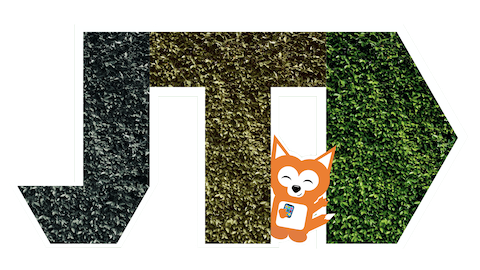EN: Lessons learned in social isolation
I didn't even like working from home. But now I ...kinda do?
Flashback: Tuesday, 10th February 2020 — or any other week day, really.
I wake up at 7:45AM, same as every Monday through Friday. I have breakfast: a cup of coffee, dry toast and a banana. I get ready and I'm out the door at 8:50AM — I have seven minutes to be at the subway platform when the train arrives by 8:57AM. I've got 26min until I get off, to clear my email inbox while I listen to music. Walking up the street and five flights of stairs, my heart is racing by the time I sit in front of the computer that I set up to turn itself on at 9:20AM. I usually beat it by a few seconds.
Flash forward: today.
I barely leave the house.
No subway to catch.
No stairs to climb, competing against an imaginary clock I set up myself.
Where did my routine go?
This isn't very relatable, I realise. And I'm not saying it should be! I am the metronome of my life, and I love keeping the beat, but most people like playing the song by ear, going with the flow as long as stuff is kept within some boundaries of predictability. You know what doesn't fit within predictability? A pandemic. We are now confined mostly to our own homes, and whoever can work remotely is now making friends with Zoom conference call software.
My company sent us home — and I should say, this cautionary measure was taken a week earlier than any official guidelines for our protection — and my concern was: I'm planning on spending 23hrs 45min per day inside this one-bedroom kitchenette apartment, and as a product manager, so much of my work is done by engaging with my team on a one-to-one basis. How can I keep a semblance of routine and productivity without going insane?
What works:
Keeping my daily routine
Out of bed by 7:45, fully dressed and ready to leave by 8:50. Having to actually dress myself in street clothes makes me feel better looking (not gonna lie) and boosts my self-confidence in my day-to-day work. Why throw that away? I spend half my day in video calls anyway, so might as well feel handsome.
Down the stairs to the building door, one lap around the building (taking out the trash when I need to), and back up in 10min. Fitting some cardio in my day already (to appease the tiny god that lives inside my Apple Watch and nags me about my activity rings).
Making some tea (I bring the pot to my desk alongside a mug, to have something to drink instead of binging on unnecessary comfort food) and I'm sitting down at 9:15AM.
Defining work schedules
My company doesn't demand a fixed work schedule from us, just that we deliver quality work and put our best into what we do. Even in normal circumstances, that may sound like "I come into the office whenever I like" but it's more like "if I don't stop myself, I'll stay later than I should". So I've established 9:20AM to 6:30PM (…ish) as a work schedule, and I'm keeping to it while I'm working from home. I've set up my computer to threaten to turn itself off at 6:10PM as a reminder (and I never let it go through with the threat, I must admit). There's always tomorrow, and I've got a clean conscience on leaving for tomorrow what I know for a fact I couldn't fit into the schedule today.
Conveying unavailability
As a product manager, I spend as much time connecting with my team as I do focusing on stuff by myself. Because of that, uninterrupted periods of time are really valuable. At the office, I wore my "NO" fez: a red hat with a sticky note saying "NO" that can be seen from afar. My friends know I wear it when I need to focus. At home, I still wear it (it's a familiar sensation for when I want to focus), but people can't see it, can they? So I turn on Do Not Disturb in Slack; if people really need me, they push through like they did at the office. The key thing here is: we know each other's signs for focus time.
Socialising in social isolation
There's no watercooler gatherings in the absence of a watercooler. To be fair, we didn't have one at the office to start with, but we do have an expansive kitchen, and snack/lunch time was essential bonding time for us. So a friend of mine suggested the virtual watercooler: a specific Hangouts room we visit when we want to have a break from work, but also want to hang out with friends. We ping a channel letting people know we're having a break, and whoever wants to join us drops into the call. It has really made a difference, providing that context we needed to just talk about the tv show some of us are watching, how we rearranged the furniture at our place, or to show silly YouTube videos.
I've had the freedom to work from home since I joined my current company over two years ago, but never took advantage of it. I felt like my productivity went downhill, I couldn't focus, and I really missed being able to sit beside my friends to sort problems out. It was almost like FOMO (Fear Of Missing Out), but exclusive to my work-life.
Currently — for obvious reasons — I'm working exclusively from home, and it's working out pretty well! I was never one to bring work home, now I still don't bring work to the sofa. I feel like it's a good compromise. All of this to say:
Change can be scary, and shake that metronome like an earthquake. That doesn't mean we can't find a rhythm in the chaos.


